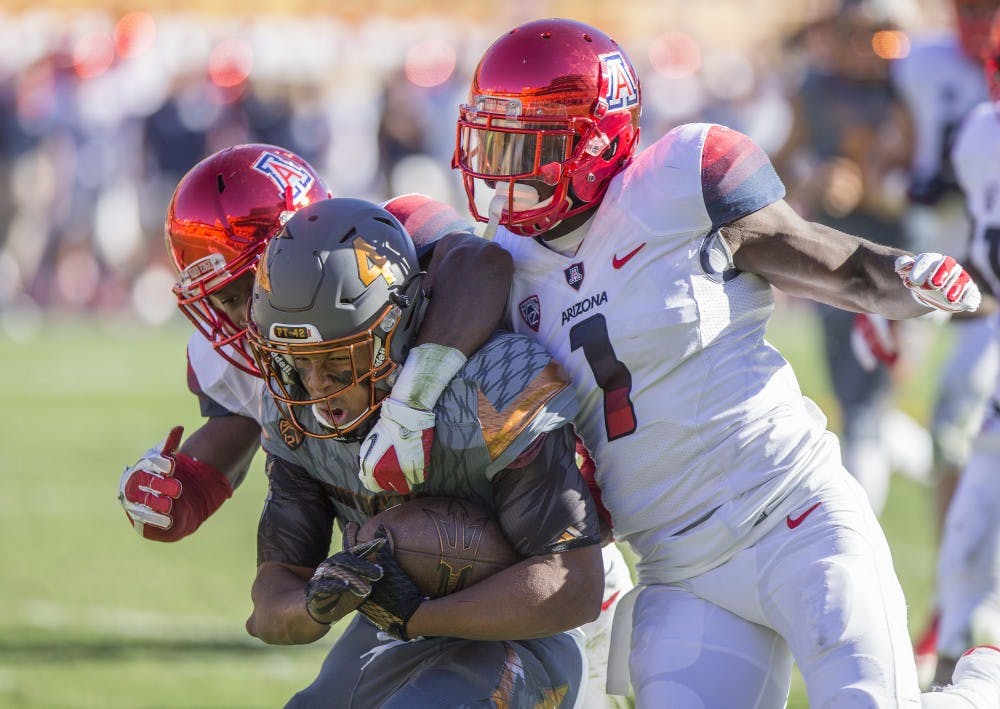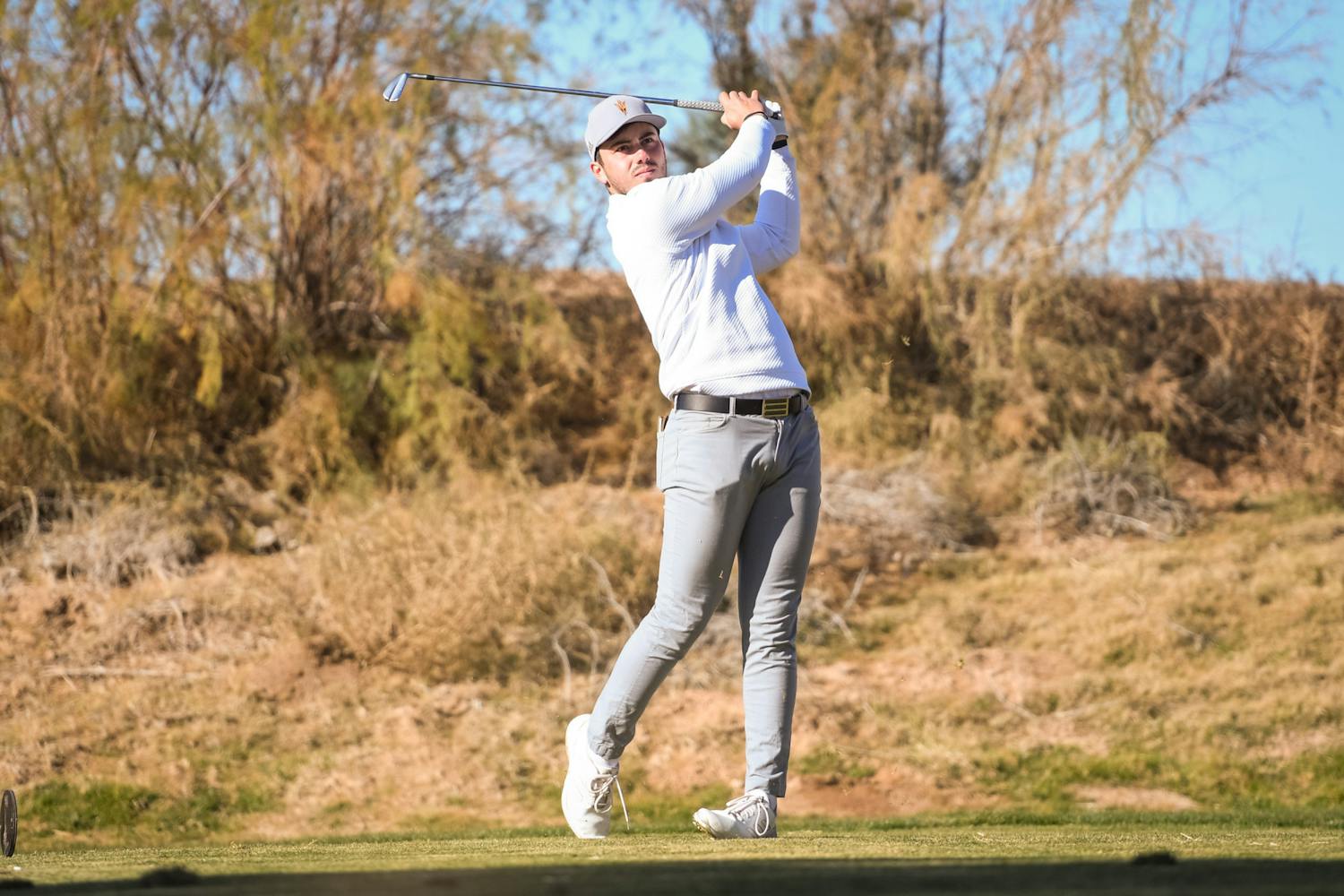When ASU football players return to the gridiron this Saturday, they launch into another season where their compensation — both from their institution and outside entities — is collusively capped by NCAA regulations.
Unfair as it may be, the most marketable, commercially valuable athletes on this campus are foreclosed from earning any more than the University decides to give them, which is currently a full cost-of-attendance scholarship (valued at $25,042 for in-state students, and $40,342 for out-of-state students).
Considering the football program generated nearly $50 million in revenue last year (about $575,000 per scholarship player), labor costs of $25,000 and $40,000 suddenly seem pretty cheap.
Some NCAA athletes, however, will return to campus this fall in a far better financial situation than their football-playing peers. Those would be the collegians that won medals at the Rio Olympics last month who are allowed to accept the monetary prizes they earned in the process.
NCAA Bylaw 12.1.2.1.4.1.2 carves out a specific exception in the amateurism rules for Olympic medal winners, permitting them to “accept funds that are administered by the U.S. Olympic Committee pursuant to its Operation Gold program.” The Operation Gold program disburses cash to U.S. medal winners: $25,000 for a gold; $15,000 for a silver; and $10,000 for a bronze. Some national sports federations go even further — with USA Wrestling awarding gold medalists $250,000.
In total, current and incoming NCAA athletes collected over $2 million in Rio that they can keep per NCAA rules. This includes Ohio State wrestler Kyle Snyder, who will take home $250,000, as well as incoming Stanford swimming phenom Katie Ledecky, pocketing $115,000.
The largest payout to a current NCAA athlete, however, is the nearly $750,000 that Texas swimmer Joseph Schooling was awarded from the Singaporean Olympic Committee for his victory in the 100-meter butterfly (beating out Michael Phelps in the process). Schooling, a rising junior at UT, will be able to keep that amount per NCAA Bylaw 12.1.2.1.4.1.3, which was added to include other national Olympic governing bodies in the compensation exception.
That the NCAA even allows college athletes to accept these cash awards is an amazingly fair, common sense decision for an association whose rules are often anything but.
Do not be deceived, however: these Olympic athletes are being paid to play. They are performing — whether it’s in the pool, on the mat or elsewhere — and are compensated for doing so.
Just because the money is laundered through the USOC does not change the simple fact that these athletes are acting in a manner contrary to the NCAA’s model of amateur athletics, which holds that so-called “student-athletes” cannot “(use) his or her athletics skill (directly or indirectly) for pay in any form in that sport.”
The question then becomes: If pay-for-play is good enough for our Olympians, then why isn’t it good enough for our collegiate football and basketball players, who forfeit millions upon millions of dollars annually because of the NCAA’s unduly restrictive compensation caps?
If Ledecky can take $115,000 from USOC for her triumphs in Rio, why can’t redshirt sophomore quarterback Manny Wilkins or junior running back Demario Richard ask for more money from ASU or, better yet, sign an endorsement deal?
There is no legitimate reason for permitting Olympic athletes to profit from their athletic achievements while restricting football and basketball players, upon whom the costs of amateurism fall disproportionately, from doing the same. If Olympic athletes aren’t destroying college athletics by accepting Olympic money, then what’s stopping collegiate football and basketball players from doing the same?
Unfortunately, the NCAA appears unwilling to significantly overhaul its compensation rules. Unless there’s a court-ordered injunction prohibiting the enforcement of its regulations, the cost-of-attendance cap is here to stay.
As a result, ASU football and basketball players will return to the arena this season just as economically disenfranchised as when they last stepped out of it.
Reach the columnist at cameron.miller.1@asu.edu or follow @camerun_miller on Twitter.
Like State Press Sports on Facebook and follow @statepresssport on Twitter.




